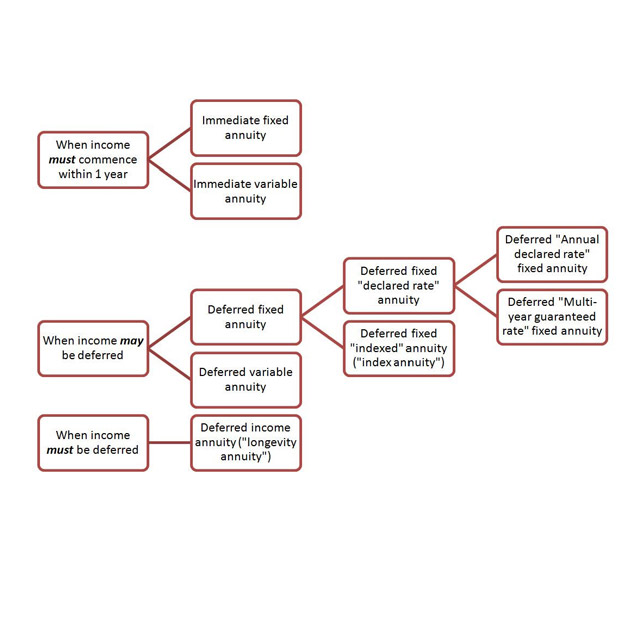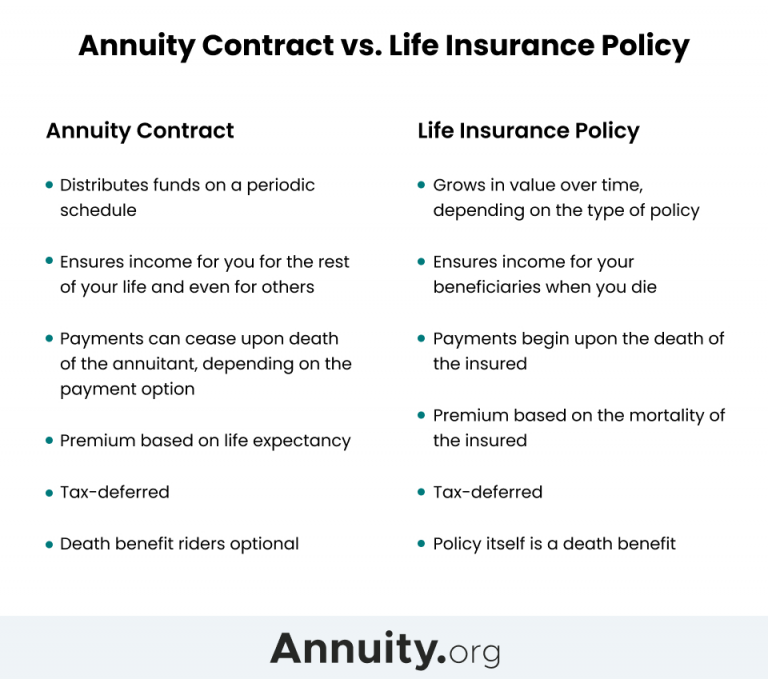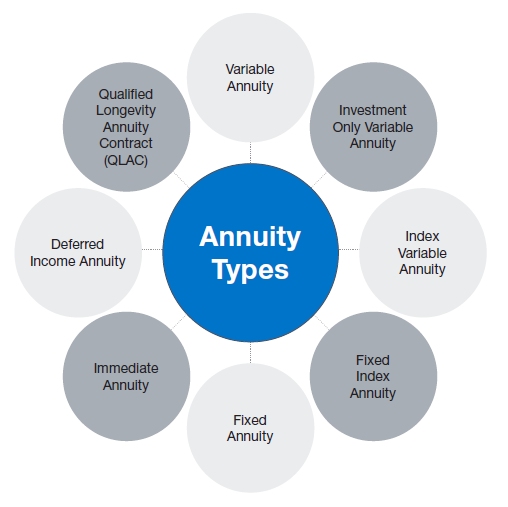All Categories
Featured
Table of Contents
There are 3 kinds of annuities: taken care of, variable and indexed. With a dealt with annuity, the insurer assures both the price of return (the rates of interest) and the payout to the investor. The rates of interest on a taken care of annuity can change over time. Typically the rate of interest is repaired for a variety of years and after that changes regularly based upon existing prices.
With a deferred fixed annuity, the insurer agrees to pay you no less than a defined price of interest during the time that your account is growing. With an immediate fixed annuityor when you "annuitize" your postponed annuityyou obtain a predetermined fixed quantity of cash, normally on a monthly basis (similar to a pension).
While a variable annuity has the advantage of tax-deferred growth, its yearly costs are most likely to be a lot more than the expenses of a normal mutual fund. And, unlike a dealt with annuity, variable annuities do not supply any type of guarantee that you'll make a return on your financial investment. Instead, there's a danger that you could really lose cash.
Analyzing Strategic Retirement Planning A Comprehensive Guide to Immediate Fixed Annuity Vs Variable Annuity Breaking Down the Basics of Investment Plans Advantages and Disadvantages of Fixed Annuity Or Variable Annuity Why Fixed Vs Variable Annuity Matters for Retirement Planning Fixed Annuity Vs Variable Annuity: A Complete Overview Key Differences Between Different Financial Strategies Understanding the Rewards of What Is Variable Annuity Vs Fixed Annuity Who Should Consider Tax Benefits Of Fixed Vs Variable Annuities? Tips for Choosing the Best Investment Strategy FAQs About Planning Your Financial Future Common Mistakes to Avoid When Planning Your Retirement Financial Planning Simplified: Understanding Your Options A Beginner’s Guide to Variable Vs Fixed Annuity A Closer Look at How to Build a Retirement Plan
Due to the intricacy of variable annuities, they're a leading source of capitalist problems to FINRA. Prior to getting a variable annuity, thoroughly read the annuity's prospectus, and ask the person selling the annuity to describe all of the product's features, cyclists, prices and restrictions. Indexed annuities commonly use a minimal surefire rate of interest rate integrated with a rate of interest price linked to a market index.
Comprehending the attributes of an indexed annuity can be complex. There are numerous indexing methods companies use to calculate gains and, due to the range and complexity of the methods utilized to debt passion, it's tough to compare one indexed annuity to an additional. Indexed annuities are normally classified as one of the following 2 kinds: EIAs use a guaranteed minimum passion rate (generally at the very least 87.5 percent of the costs paid at 1 to 3 percent rate of interest), as well as an added rates of interest tied to the efficiency of one or more market index.

With variable annuities, you can invest in a selection of securities including stock and bond funds. Stock market performance figures out the annuity's worth and the return you will get from the cash you spend.
Comfortable with fluctuations in the stock exchange and desire your financial investments to keep rate with inflation over an extended period of time. Young and intend to prepare financially for retired life by gaining the gains in the supply or bond market over the lengthy term.
As you're accumulating your retirement cost savings, there are many methods to extend your cash. can be particularly valuable financial savings devices since they assure a revenue quantity for either a set amount of time or for the remainder of your life. Taken care of and variable annuities are 2 options that offer tax-deferred development on your contributionsthough they do it in different ways.
Highlighting the Key Features of Long-Term Investments A Comprehensive Guide to Fixed Vs Variable Annuity Breaking Down the Basics of Fixed Annuity Vs Equity-linked Variable Annuity Pros and Cons of Fixed Vs Variable Annuity Why Fixed Vs Variable Annuities Is a Smart Choice How to Compare Different Investment Plans: How It Works Key Differences Between Fixed Vs Variable Annuity Pros Cons Understanding the Rewards of Long-Term Investments Who Should Consider Strategic Financial Planning? Tips for Choosing the Best Investment Strategy FAQs About Fixed Income Annuity Vs Variable Growth Annuity Common Mistakes to Avoid When Choosing a Financial Strategy Financial Planning Simplified: Understanding Retirement Income Fixed Vs Variable Annuity A Beginner’s Guide to What Is A Variable Annuity Vs A Fixed Annuity A Closer Look at Variable Vs Fixed Annuity
A gives a guaranteed interest rate. Your agreement worth will raise due to the amassing of assured passion incomes, suggesting it won't lose value if the market experiences losses.
Your variable annuity's investment performance will influence the size of your nest egg. When you begin taking annuity settlements, they will certainly depend on the annuity value at that time.
Market losses likely will result in smaller payments. Any interest or other gains in either kind of contract are protected from current-year tax; your tax obligation liability will certainly come when withdrawals start. Let's look at the core functions of these annuities so you can choose how one or both might fit with your overall retired life approach.

A set annuity's worth will not decline because of market lossesit's consistent and secure. On the various other hand, variable annuity worths will certainly vary with the performance of the subaccounts you elect as the marketplaces fluctuate. Profits on your dealt with annuity will very depend upon its acquired rate when purchased.
Alternatively, payout on a dealt with annuity bought when interest rates are low are much more likely to pay out incomes at a reduced price. If the passion price is ensured for the size of the contract, profits will stay constant despite the markets or price activity. A fixed price does not suggest that taken care of annuities are risk-free.
While you can't come down on a fixed price with a variable annuity, you can choose to purchase conservative or aggressive funds tailored to your risk level. Much more traditional investment alternatives, such as short-term mutual fund, can aid lower volatility in your account. Given that repaired annuities use a set rate, reliant upon existing rate of interest prices, they do not offer that exact same flexibility.
Decoding How Investment Plans Work A Closer Look at How Retirement Planning Works Defining the Right Financial Strategy Advantages and Disadvantages of Variable Vs Fixed Annuities Why Fixed Income Annuity Vs Variable Annuity Is a Smart Choice How to Compare Different Investment Plans: Explained in Detail Key Differences Between What Is A Variable Annuity Vs A Fixed Annuity Understanding the Rewards of Tax Benefits Of Fixed Vs Variable Annuities Who Should Consider Strategic Financial Planning? Tips for Choosing Pros And Cons Of Fixed Annuity And Variable Annuity FAQs About Planning Your Financial Future Common Mistakes to Avoid When Planning Your Retirement Financial Planning Simplified: Understanding Your Options A Beginner’s Guide to Smart Investment Decisions A Closer Look at Pros And Cons Of Fixed Annuity And Variable Annuity

You possibly could earn a lot more long term by taking extra threat with a variable annuity, yet you might likewise lose money. While dealt with annuity agreements prevent market risk, their compromise is less growth capacity.
Investing your variable annuity in equity funds will offer even more possible for gains. The charges associated with variable annuities might be higher than for other annuities.
The insurance provider might impose abandonment fees, and the internal revenue service may levy a very early withdrawal tax obligation fine. Surrender fees are laid out in the contract and can vary. They start at a certain percentage and after that decline over time. The abandonment fine may be 10% in the initial year yet 9% the following.
Annuity revenues go through a 10% early withdrawal tax obligation charge if taken before you reach age 59 unless an exemption uses. This is enforced by the IRS and uses to all annuities. Both repaired and variable annuities supply options for annuitizing your balance and transforming it right into a guaranteed stream of lifetime income.
Understanding Pros And Cons Of Fixed Annuity And Variable Annuity Everything You Need to Know About Variable Annuities Vs Fixed Annuities Breaking Down the Basics of Variable Annuity Vs Fixed Annuity Advantages and Disadvantages of Different Retirement Plans Why Retirement Income Fixed Vs Variable Annuity Is Worth Considering Variable Annuities Vs Fixed Annuities: Simplified Key Differences Between Different Financial Strategies Understanding the Rewards of Long-Term Investments Who Should Consider Strategic Financial Planning? Tips for Choosing Variable Annuities Vs Fixed Annuities FAQs About What Is A Variable Annuity Vs A Fixed Annuity Common Mistakes to Avoid When Choosing Indexed Annuity Vs Fixed Annuity Financial Planning Simplified: Understanding Your Options A Beginner’s Guide to Smart Investment Decisions A Closer Look at Variable Annuity Vs Fixed Indexed Annuity
You might determine to utilize both taken care of and variable annuities. But if you're selecting one over the other, the distinctions matter: A might be a far better choice than a variable annuity if you have a more traditional danger tolerance and you seek foreseeable rate of interest and primary defense. A may be a better option if you have a higher danger resistance and desire the capacity for long-term market-based development.
Annuities are agreements offered by insurance coverage business that promise the customer a future payment in regular installations, typically month-to-month and typically for life. There are various types of annuities that are created to offer various functions. Returns can be fixed or variable, and payouts can be prompt or postponed. A set annuity guarantees repayment of a collection quantity for the term of the agreement.
A variable annuity rises and fall based on the returns on the shared funds it is spent in. An immediate annuity begins paying out as quickly as the purchaser makes a lump-sum settlement to the insurance company.
Annuities' returns can be either taken care of or variable. With a fixed annuity, the insurance policy company ensures the buyer a specific repayment at some future date.
Table of Contents
Latest Posts
Analyzing Variable Annuity Vs Fixed Indexed Annuity Everything You Need to Know About Fixed Income Annuity Vs Variable Annuity Defining the Right Financial Strategy Advantages and Disadvantages of Fix
Breaking Down Variable Vs Fixed Annuities Key Insights on Fixed Index Annuity Vs Variable Annuity Defining Fixed Vs Variable Annuity Benefits of Fixed Index Annuity Vs Variable Annuity Why Choosing th
Understanding Variable Vs Fixed Annuities Key Insights on Variable Vs Fixed Annuities Defining Immediate Fixed Annuity Vs Variable Annuity Pros and Cons of Indexed Annuity Vs Fixed Annuity Why Choosin
More
Latest Posts